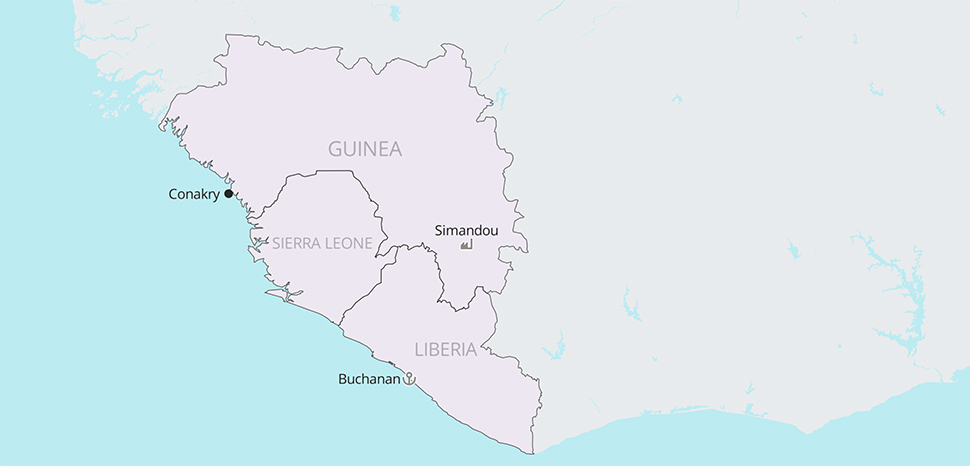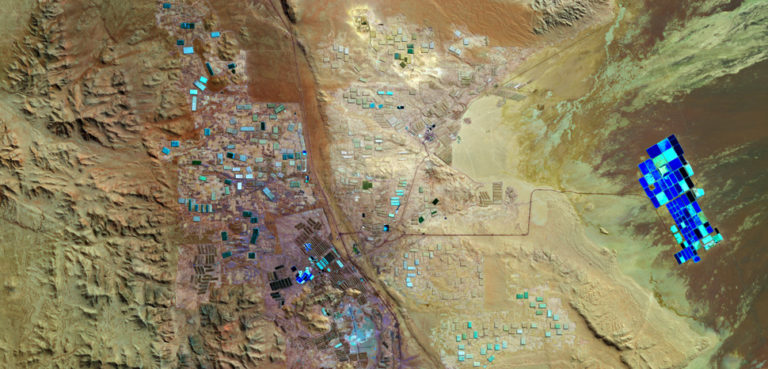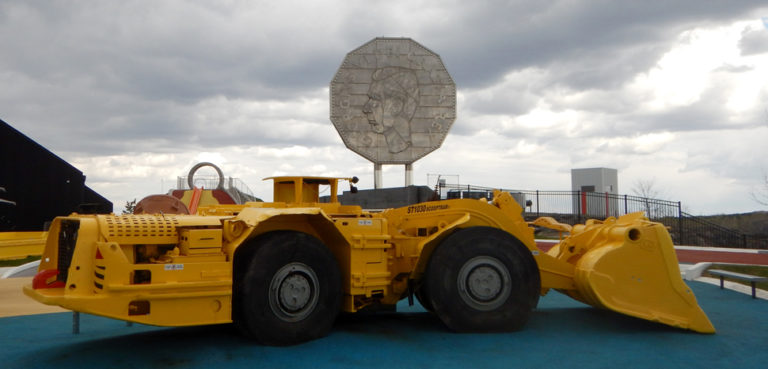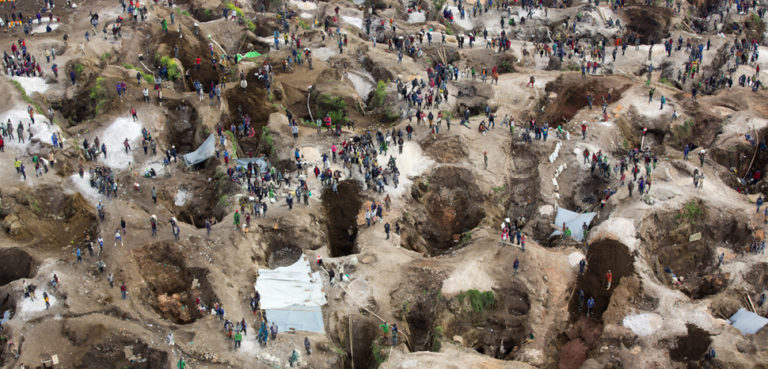Core Insights:
- President Alpha Condé has been deposed by a military coup in Guinea, leading to a spike in global aluminum prices.
- Guinea is a major exporter of bauxite, which accounts for nearly half of the country’s exports. The country also has some of the largest untapped iron reserves in the world.
- Guinea is one of China’s key African partners and is home to the expansive Simandou mining development, which Beijing hopes will one day alleviate its over-reliance on Australian iron exports.
Elements within the Guinean army have taken it upon themselves to pen a new chapter in the West African country’s tumultuous political history.
A group of soldiers detained President Alpha Conde over the weekend following a pitched battle around the presidential palace. The coup seems to have been led by one Col. Mamadi Doumbouya – a former French Legionnaire – though the extent of Doumbouya’s support within the wider armed forces remains unknown.
Military leaders have justified the coup in populist terms, citing the country’s woeful roads and hospitals despite its abundant mineral wealth. Doumbouya has annulled the constitution and promised to restore democracy at some point in the future.
Former president Alpha Conde was once hailed as a harbinger of democratic reform in a country that has suffered decades of authoritarianism, corruption, and routine coup d’états since gaining independence from France in 1958. Conde was markedly less committed to protecting democratic freedoms upon assuming office in 2010, however, and his eventual insistence on standing for a third term in office – despite constitutional term limits – engendered a wave of violent protests late last year.
Small country, big economic impact
Though a small country of around 13 million people, Guinea punches above its weight in economic terms due to the strategic nature of its main export: bauxite, which accounts for around 46.5% of its export portfolio. (To get a sense of just how important the mining industry is to Guinea, gold represents another 46% of exports).
Guinea is the world’s second-biggest producer of bauxite, a primary input in the production of aluminum ore, and is also home to the world’s largest bauxite reserves. Aluminum prices were already up nearly 40% in 2021 owing to COVID-related stimulus, economic recovery, and shipping bottlenecks. The coup effectively poured more fuel on the fire, sending prices up a further 3% to reach $2,768 per tonne – a level not seen since May of 2011.
The coup leaders have thus far tried to firewall the country’s lucrative mining sector from disruption, calling on mining companies to continue their normal operations. They have also indicated that preexisting mining agreements will be honored. However, two considerations would seem to merit a wait-and-see approach for foreign investors: 1) the coup may not be a ‘done deal,’ and conflict could break out between the coup’s supporters and detractors, or within the coup plotters’ inner circle itself; and 2) the populist language that the coup is draped in suggests a potential reappraisal of the social contract underpinning Guinea’s mining sector, if one takes it at face value.
The geopolitical stakes are high for China
Beijing has a lot to lose if the coup upends business-as-usual.
China sources around 55% of its bauxite from Guinea, which it uses in the production of aluminum. By one estimate, around 20% of all aluminum in the world is produced from Guinean bauxite. China also leads the world in aluminum production, and by a wide margin no less. In 2019, China produced 36,000,000 tonnes of aluminum; the second-place country was India with 3,700,000 tonnes.
China’s reliance on Guinean bauxite thus sets the table for volatile price movements going forward. And these movements will not be restricted to aluminum markets, as the industrial metal is a key input in a variety of consumer products ranging from beer cans to iPhones (each iPhone contains 31 grams of aluminum). It follows that significant supply disruptions in Guinea risk creating another inflationary trend right at a time when energy prices are surging.
There are few appealing alternatives for Chinese policymakers looking to diversify away from Guinean bauxite. Indonesia has banned the export of raw materials, including bauxite, in order to stimulate a domestic processing industry. That leaves Australia, the world’s other top bauxite producer alongside Guinea. Australian bauxite exports to China have so far been spared in the ongoing bilateral trade dispute. However, it has long been apparent that Beijing is intent on reducing its dependence on Australian exports of critical inputs.
The sprawling Simandou iron mine hangs in the balance
Speaking of which, Guinea figures prominently in another Chinese play to reduce its overreliance on Australian strategic exports: development of the Simandou mining complex, home to the world’s largest untapped iron reserves. The main foreign backers in the project are Rio Tinto Group and China Baowu Steel Group, the latter of which took over the Aluminum Corp. of China’s (Chalco) stake in 2020. Supporting infrastructure for the complex has already been approved, with a cost estimate in the range of $15-$23 billion to bring the project online. With a production date of 2026, Simandou could well be a game-changer in global iron markets, with initial output as high as 60 million mt of high-grade iron ore per year.
The Simandou project has kicked up no shortage of controversy over the years. For one, it represents somewhat of a logistical nightmare as the mines are located deep within Guinea, requiring a significant up-front infrastructure investment to allow the ore to reach global markets. This investment could be mitigated by routing the ore through Buchanan port in Liberia, which is geographically much closer than Conakry. However, the Conde administration resisted such pressures, hoping to keep the Simandou operation – and the billions in investment it represents – an all-Guinean affair. Incidentally, it will be interesting to see what position the new junta takes on this front.
Governance is another matter, namely the deeply entrenched culture of corruption and weak regulatory framework under which mining giants operate in Guinea. Simandou is already synonymous with graft and bureaucratic ineptitude. After Rio Tinto was first awarded full mining rights in 1997, various blocks have been expropriated by the state, transferred by legal ruling, and/or stripped following cases of high-profile corruption. The project’s forward momentum in recent years is more a factor of political will on the Chinese side, motivated by geopolitical concerns, rather than any material shift in Guinea’s investment climate.
Put simply: Simandou was a bridge too far even before last week’s coup. And given the lack of a development dividend after decades of foreign investment in gold and bauxite, the latter of which has endured years of intermittently low prices due to overproduction in global aluminum, it will be a hard sell for the junta to maintain any semblance of popular credibility without taking direct aim at the kind of business practices that China and other mining giants have long thrived on.
It’s safe to say the coup represents a potential net loss for China, the true extent of which remains to be seen.




